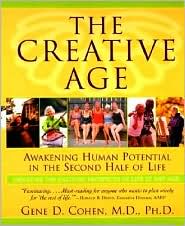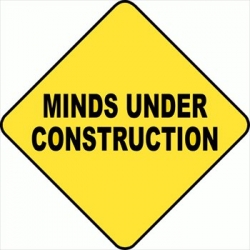Cognitive Advancement NOT Decline with Age
 The theme behind this blog is that nature gave us the hind brain, mid brain and fore brain, now the Next Brain is up to us. A somewhat playful way of making the claim that we now have enough science, technology and practical insight to implement training programs and lifestyle changes that will significantly impact brain function and cognitive performance. The 80+ posts on this site are just scratching the surface.
The theme behind this blog is that nature gave us the hind brain, mid brain and fore brain, now the Next Brain is up to us. A somewhat playful way of making the claim that we now have enough science, technology and practical insight to implement training programs and lifestyle changes that will significantly impact brain function and cognitive performance. The 80+ posts on this site are just scratching the surface.
One of the most exciting trends that support the prospects of your Next Brain is the recent scientific work suggesting many important cognitive functions actually improve with age. Indeed, there maybe several stages of cognitive development that move us through adulthood and old age. I have blogged on this before but want to encourage you to read Cohen’s book, The Creative Age. It is inspirational at many levels but one of the things that is particularly striking are the examples he gives of major creative contributions made by older adults.
Some examples:
- Freud publishes the Ego and the Id (his major work) at 67
- Stradivaria (or Stradivarious) designed and built his two most famous violins – the Habeneck and the Muntz when he was 92
- Leaky made her most important archeological discovery (hominid footprints that are 3.5 million years old) when she was 65
- Alexanderson was award a patent on the color television reciever developed for RCA when he was 77
- A 65 year old physicist was the first to liquify helium in 1932
- Michelangelo was 72 when he was appointed architect for St. Peters in Rome
These examples are important because they demonstrate creative acts of global importance started and completed by older adults. This is very different from the many examples of older adults that are recognized for creative acts completed during younger years.
Now most of us are not world-class scientists, artisians, inventors or leaders but the message from these examples is still very relevant:
It is possible to continue to develop and use advanced cognitive skills as we age into our 60s, 70s, 80s and even 90s.
 This challenges one of the major myths about the aging brain that shrinks, becomes forgetful, cannot grow new brain cells/connections, loses energy and in more and more cases slides into dementia. Clearly our minds are still under construction.
This challenges one of the major myths about the aging brain that shrinks, becomes forgetful, cannot grow new brain cells/connections, loses energy and in more and more cases slides into dementia. Clearly our minds are still under construction.
Perhaps we will ultimately learn that the decades of later adulthood and old age are in fact just the time and proving grounds we need to build our Next Brains.

.…
thanks!…
.…
thanks!!…
.…
????? ?? ????!…
.…
thank you….
.…
good info!…
.…
??????????!!…
.…
??????? ?? ????….
.…
thanks for information….
.…
ñïàñèáî çà èíôó!…
.…
ñïñ!…
.…
áëàãîäàðåí!…
.…
áëàãîäàðñòâóþ….
.…
ñïñ….
.…
áëàãîäàðåí….
.…
áëàãîäàðþ!!…
.…
thank you….
.…
good info!!…
.…
thanks for information!…
.…
good info….